The Outlook for Dividend Stocks Right Now
SimplySafeDividends.com's Brian Bollinger joins our hosts Sandy Block and Ryan Ermey to discuss what the months ahead hold for income investors. Also, the pair chats about highlights from the Berkshire Hathaway annual shareholder meeting.

Profit and prosper with the best of Kiplinger's advice on investing, taxes, retirement, personal finance and much more. Delivered daily. Enter your email in the box and click Sign Me Up.
You are now subscribed
Your newsletter sign-up was successful
Want to add more newsletters?

Delivered daily
Kiplinger Today
Profit and prosper with the best of Kiplinger's advice on investing, taxes, retirement, personal finance and much more delivered daily. Smart money moves start here.

Sent five days a week
Kiplinger A Step Ahead
Get practical help to make better financial decisions in your everyday life, from spending to savings on top deals.

Delivered daily
Kiplinger Closing Bell
Get today's biggest financial and investing headlines delivered to your inbox every day the U.S. stock market is open.

Sent twice a week
Kiplinger Adviser Intel
Financial pros across the country share best practices and fresh tactics to preserve and grow your wealth.

Delivered weekly
Kiplinger Tax Tips
Trim your federal and state tax bills with practical tax-planning and tax-cutting strategies.

Sent twice a week
Kiplinger Retirement Tips
Your twice-a-week guide to planning and enjoying a financially secure and richly rewarding retirement

Sent bimonthly.
Kiplinger Adviser Angle
Insights for advisers, wealth managers and other financial professionals.

Sent twice a week
Kiplinger Investing Weekly
Your twice-a-week roundup of promising stocks, funds, companies and industries you should consider, ones you should avoid, and why.

Sent weekly for six weeks
Kiplinger Invest for Retirement
Your step-by-step six-part series on how to invest for retirement, from devising a successful strategy to exactly which investments to choose.
Ryan Ermey: Dividends. Long-term investors love them. Income investors need them -- and it's never been more unclear what's going to happen with them. Simply Safe Dividends president Brian Bollinger joins the show to discuss a situation that's anything but simple in our main segment. On today's show, Sandy and I chat about highlights from the Berkshire Hathaway annual meeting and a new edition of wild pitches, features, car subscriptions and shady bitcoin math. That's all ahead on this episode of Your Money's Worth. Stick around.
- Episode Length: 00:33:11
- SUBSCRIBE: Apple Google Play Spotify Overcast RSS
Ryan Ermey: Welcome to Your Money's Worth. I'm Kiplinger associate editor Ryan Ermey, joined, as always, by senior editor Sandy Block. Sandy, have you been watching or reading anything interesting during this quarantine recently?
Sandy Block: Actually, Ryan, I've been reading a book that I was going to recommend to you. It's called Sweetbitter. Have you heard of it?
From just $107.88 $24.99 for Kiplinger Personal Finance
Become a smarter, better informed investor. Subscribe from just $107.88 $24.99, plus get up to 4 Special Issues

Sign up for Kiplinger’s Free Newsletters
Profit and prosper with the best of expert advice on investing, taxes, retirement, personal finance and more - straight to your e-mail.
Profit and prosper with the best of expert advice - straight to your e-mail.
Ryan Ermey: No.
Sandy Block: Oh, you got to read it because it's about working in a restaurant . . . I think the right term for this is "romana clef." It's a novel, but it's highly memoir-like, written by a woman who was a waitress in Union Square Market. Is that right?
Ryan Ermey: Yeah.
Sandy Block: It's like Kitchen Confidential, 30 years later. It's kind of weird reading it now, because there are no restaurants, but anyone who's interested in restaurants, I think, would love this book because the details . . . you said something the other day about how you got two free drinks. She talks about that being part of the compensation was that you got a drink. At this restaurant, a drink meant a $24 glass of wine, right?
Ryan Ermey: There you go.
Sandy Block: But it's just a really fun read. It's like I said, it's kind of weird reading it because I can't go to a restaurant, but I love the details and the behind the scenes stuff. Restaurant business is just crazy. It's just crazy and it really gets, at least the high-end kind, and it kind of gets at that. So how about you? What do you got?
Ryan Ermey: Oh, man. Well, first of all, I must say . . . crazy and the most fun people to party with in the world. That's what I miss about working in restaurants. Well, let's see. I'm reading a terrible book. I just got done reading a great book, but then I had signed up for "Book of the Month," which is . . .
Sandy Block: That still exists? My mother was a founding member of that.
Ryan Ermey: It's been around forever. But I made a bad choice this last month. It's a crappy whodunit murder on an island kind of thing.
Sandy Block: Of course. It's on an island.
Ryan Ermey: I kind of wanted an easier read between more in-depth ones, but this is like . . . the words are like 36-point font. It's like following a ball, lightning striking every time someone talks. I've been watching some good stuff. I've been watching Ozark, which everyone I think is. Of course, as a follower of markets, I tuned in eagerly to the annual Berkshire Hathaway shareholder meeting you want to talk about . . .
Sandy Block: Nice segue, buddy.
Ryan Ermey: Thank you very, very much. That's what we're talking about a little bit in our first segment because everyone wants to know what the Oracle has to say. You got to see it this year without even having to fly to Omaha. So the big takeaway -- and the thing that pretty much has never changed about Buffett -- is that he's always going to be doing his rah-rah America thing. So this time he said, "Nothing can stop America when you come down to it, even with the scariest of scenarios. It may have been tested during the great depression and it may be tested now, to some degree. In the end, the answer is never bet against America. That, in my view, is true today as it was in 1789 and even was true during the Civil War in the depths of the Depression. In 2020, we are now a better country as well as an incredibly more wealthy country than we were in 1789."
Ryan Ermey: Look, this is a guy who has said he owes all of his wealth to being born in America when he was and investing in the U.S. stock market and over time, the U.S. stock market has gone up and up and up. So it has paid to be a long-term investor. Now, he has soured on airlines. You pointed out something funny that he had said about airlines before.
Sandy Block: When we were emailing about the fact that he's down on airlines, I remembered that at one point Warren Buffett said, "Never invest in an airline." In 2007, he wrote in his annual letter, "If a farsighted capitalist had been present at Kitty Hawk, he would have done his successors a huge favor by shooting Orville down." At that time, he was very sour on airlines. He thought they were badly managed, just didn't have a good economic model. But he really turned around. He really began to believe that airlines had figured it out, had figured out how to get the most money, cram as many people in there as possible and make a lot of money. I think in his letter, even now he's saying -- even though he soured on airlines -- he's saying it's not really their fault. He soured on them, because they have been hit by circumstances over which they could not have had any control.
Ryan Ermey: Right. So he said, "I don't envy anybody with the job of being CEO of an airline. The airline business changed in a very major way. The future is much less clear to me about how the business will turn out. The world changed for airlines and I wish them well, but it's one of the businesses that we own directly that are going to be hurt." So he is going to come out exactly what he did by the end of March, anyway, the quarterly report. But he has exited his investments in American Airlines, Delta, Southwest and United, because when they sell something, he tends to sell the entire stake. He's still, to be clear, a believer that people were going to be flying, eventually, and it's why he still likes Boeing, which I thought was another interesting thing that came up.
Ryan Ermey: He said, "It's one hell of a company. It's important. It's a huge exporter. It affects a lot of jobs and they're not going to be seeking federal aid." They raised a $25 billion bond offering. Maybe I'm bringing this up, because I said Boeing was going to be one of the best stocks of the decade, off to a slow start at the gates, I'm afraid, but . . .
Sandy Block: But you and Warren are on the same page. That's pretty good.
Ryan Ermey: He says, "Airlines don't know what their future is and I don't know what their future is. We're going to have aircraft, we're going to be flying. The real question is whether they're going to be in need of new planes or not and you're likely going to need them and it affects a lot of people. It obviously affects Boeing," and yeah, that's the deal. Boeing is part of a duopoly with Airbus and as long as people are buying new planes, Boeing is going to be making money. So I still tend to like that stock, as well. It's just at this point, you have to be looking, get your telescope out . . . to look at the future of that company. A couple of other things I wanted to hit on. He talks about buybacks, because Berkshire is a famous repurchaser of shares and they don't issue a dividend.
Ryan Ermey: He said that, "It's very politically correct to be against buybacks now. Buybacks are so simple, it's a way of distributing cash to shareholders. We will repurchase shares when it's to the advantage of the continuing shareholder to have us do so. It should be price- sensitive, obviously. It should be need-sensitive, obviously, but when the conditions are right, it should also be obvious to repurchase shares and there shouldn't be the slightest taint to it any more than there is to dividends." So share buybacks, I don't actually know what the deal is now, but up until the outbreak and through 2019 anyway, share buy backs, were reaching record levels. The criticism is that they're used to boost a company's earnings per share, right?
Ryan Ermey: You're taking shares off the table, but your company still has the same earnings and it's related to executive compensation. It's related to diluting shares that are vesting for executives. But the argument that Buffett makes here is a pretty compelling one that at least for mature businesses for well-run businesses, buying shares back when they've declined is an idea that executives are confident in the future of the business and should largely be seen, at least in my opinion, positively by investors. Now the difference between a buyback and a dividend, and we're going to get into a discussion of what the dividend picture looks like here, is that traditionally, if you announce a buyback and then don't do it, no one cares.
Ryan Ermey: If you announce a dividend and don't do it or do it to a lesser extent, cut your dividend or whatever, that's when your stock typically hits the skids, investors sell it off, the CEO gets fired. It's like a big deal. So it's an interesting thing coming from Buffett, because when Buffett's no longer the CEO, a lot of people who watch Berkshire think that it's possible that the leadership team that takes over could declare a dividend, which would be a big deal for shareholders who might want to pile in there. Of course, I think we've discussed on this show that dividends make up a large portion of total return over time. So people would be excited about that.
Sandy Block: Yeah, they'd love it, sure.
Ryan Ermey: The last thing worth mentioning here, just to reiterate that he still has . . . it just always pays to have the longest view in the room when it comes to markets. He says, "Equities are going to outperform. They're going to outperform treasury bills, they're going to outperform that money you've stuck under your mattress." They're an enormously sound investment as long as they're an investment and they're not a gambling device or something that you think you can safely buy on margin.
Ryan Ermey: So essentially, he's reiterating that even in these chaotic times, it still pays to be a buy-and-hold investor. It's still pays to buy in to the U.S. stock market and hold for a long time. So the time-tested advice from Buffett, we always like to check in with him. Early on in my tenure at Kiplinger's, we put him on the cover of the magazine without even having an interview with him. We just, we liked the guy . . .
Sandy Block: Because everybody likes to look at him. That's right.
Ryan Ermey: We liked the guy. Everyone likes the guy. He's made a zillion dollars for a reason. So the overarching advice is stay the course, even if you're selling all your airline stock in the short term. Coming up, Brian Bollinger breaks down the outlook for dividend paying stocks. Don't go anywhere.
Ryan Ermey: We are back and we're here today with Brian Bollinger. He is the president of Simply Safe Dividends and we are talking a little bit about the outlook here for dividend paying stocks. So, Brian, thank you so much for coming on.
Brian Bollinger: Thanks for having me, Ryan.
Ryan Ermey: So the big question is how has the COVID-19 pandemic and the associated economic shutdown affected the big picture for dividend-paying stocks?
Brian Bollinger: Well, social distancing and government-mandated lockdowns have really accelerated some pre-existing problems in certain industries. They've also magnified the cyclicality of other industries in ways that a lot of management teams have never really experienced before. So I guess not surprisingly, these forces have dealt a quick and heavy blow to dividends and industries that are most directly in the crosshairs of the coronavirus. A lot of financially weaker businesses have already cut their dividends. We expect to see more cuts the rest of this year. How many will really depend on the timing and pace of the economic recovery. But we also think there are plenty of healthy businesses that are positioned to weather the storm with their dividends intact, too.
Sandy Block: How does the current situation compared to other economic downturns in terms of the depth and the breadth of dividend cuts?
Brian Bollinger: Well, each downturn is certainly different and this one especially. So if you were to look back to the financial crisis, which was an unusually harsh environment for dividends, the pace of economic decline then was relatively gradual compared to today. Whereas now we're kind of more looking at a cliff with a lot of businesses and certain industries, seeing their revenue plunge almost zero and you have 30 million Americans filing for employment in less than a month. So it's been a radical pace of change and that has led to an extreme pace of dividend cuts out of the gate. To give you a little perspective, we monitor nearly 1,400 U.S. stocks for dividend safety.
Brian Bollinger: Since mid-March, when things began to really ramp up, nearly 15% of those businesses have already cut or suspended their dividends. More companies have already suspended their dividends this year than they did in all of 2009. So if you look at the financial crisis, back then, around one and three of the dividend paying companies in the S&P 500 reduced or eliminated their dividends and the total dividends paid fell by around 20, 25% in total. A lot of that was driven by the financial sector. But if you look at today, if the economy doesn't begin to recovering after the second quarter, as many companies are hoping it does, I think it's certainly possible that dividend reductions in this downturn could exceed those totals as payout cuts begin to permeate into other industries.
Ryan Ermey: So obviously, one of the big differences between this downturn and the last major one, '07, '09 is it's really targeted in terms of what kinds of businesses are completely shut down, others are still up and running. So with that in mind, which sectors or industries have companies with dividends in the greatest danger and in which we've already seen serious cuts and then which sectors and industries are looking more like safe havens for income investors?
Brian Bollinger: Good question, and you're right. Compared to the financial crisis, so far at least, the financial sector has been fairly immune, although the credit impact from the coronavirus will take time to ripple through, right? It takes time for rent and mortgage payments to be missed and for loans to go bad when they come due. So it's kind of a wait and see there with a lot of the bigger banks, but they remain in much better shape than they were certainly 10 years ago. So far they've maintained their commitment to their dividends. In terms of dangerous areas. In a lot of the cuts we've seen so far have happened in spaces that are most immediately impacted by the pandemic in a severe way. So you think about consumer retailers, energy, automotive, aerospace, hotels, restaurants, apparel, even some hospitals as lots of procedures have plummeted.
Brian Bollinger: Some of the real estate investment trusts a popular space for income, some of those rates that have been tied to those areas have announced cuts as well, especially those with high exposure to hotels, malls, non-essential retailers, and even senior housing with some of the impact we're seeing there. So generally speaking, we think dividends will remain under pressure in those spaces, at least the dividends that are still standing since weak demand and minimal visibility make capital preservation a paramount priority right now, but it's not all doom and gloom out there. There are some safe havens. A lot of businesses have stuck by their dividends so far despite experiencing rocky demand. Package delivery giant UPS is one example, Caterpillar, Ad Agency, Omnicom, Refiner, Valero, Exxon. If you're looking broader, I would say the few areas of the market that have continued to be safe havens and maintain that status in this pandemic are most parts of consumer staples.
Brian Bollinger: Think about companies like Pepsi, Kimbery-Clark, General Mills -- businesses that are selling essential products that are still reaching the core of their consumer base. Regulated utilities have also held in there fairly well providing essential service and earning regulated returns. Southern Company actually increased its dividend by 3% recently. Then two other spaces I'll just briefly mention are parts of technology, which is not really known for dividends, but it has a few big payers there like Apple, Cisco, IBM. Some of these companies generate a lot of their earnings from software and other services that provide recurring revenue and can continue being delivered. They also have huge cash hoards on their balance sheets and then parts of healthcare that have remained essential. So one example is pharmaceuticals. A company like. Johnson & Johnson, which recently raised its dividend. Demand for those products and distribution of them should remain intact throughout this crisis.
Sandy Block: So, Brian, sort of following up on that, if a company was looking otherwise healthy and poised for dividend growth coming into this crisis, but then has since suspended dividend -- because of some of the factors that you mentioned -- is it worth hanging out for a few quarters to see if it'll come back or should you look for somewhere else some of these sectors that aren't as hard hit and switch to that?
Brian Bollinger: Well, you raise a great point and during normal market conditions, dividend cuts can often reflect a structural adverse change in a company's financial health or long-term outlook. But that's not necessarily true with a lot of the cuts and suspensions that are coming through today unless you think that social distancing and rolling lockdowns are here to stay as part of the new normal. So for investors that experienced a dividend cut in their portfolio, I like to ask three questions. First, does a business seem likely to survive this crisis? Does the company's longterm outlook appear mostly intact? Can I go without the income for now? And if the answer is yes to all those questions and the stock's valuation looks attractive, then I wouldn't feel an urgency to do anything if you still like the business because the odds are that you own a good company that will eventually return to paying dividends while continuing to increase in value in the years ahead.
Ryan Ermey: That sort of gets right to the heart of . . . your site is called Simply Safe Dividends. If you're trying to identify those firms which are financially healthy, promising companies who look poised to come out of this increasing their dividends and being good businesses, what are the kinds of financial metrics that individual investors should be looking at to determine 'does this company have the ability to maintain and even grow their dividend?'
Brian Bollinger: Well, unlike our company name, I guess analyzing dividends has become anything but simple the last couple of months we've been . . .
Ryan Ermey: That's fair enough.
Brian Bollinger: . . . really working around the clock. But ultimately, dividends are an output that reflects management's ongoing confidence in a company's cash flow generation, balance sheet, strength and liquidity. So it's important to really evaluate each of those factors and trying to assess what could happen to a dividend in the months or quarters ahead. It's admittedly pretty hard to forecast in this environment. Most companies have taken down their guidance for the year, but you can still try to understand the impact the coronavirus is having on a company or not depending on the industry it's in, in it's line of business. So first, I would try and assess what I guess you could call it the payout ratio, which is how well is cashflow covering the dividend going forward.
Brian Bollinger: So take a look at what the business does and try and answer how big of a hit could cash flow take if demand remains weak for longer, because of cashflow is no longer in a position to cover the dividend, companies are pretty reluctant to part with capital, much less borrow money to sustain dividends in this environment. So taking a look at the balance sheet and liquidity is also important. Look at how much leverage a business has, their debt relative to their earnings, the cash they have on hand, if they have any big upcoming debt maturities that need to be refinanced. Those are some of the main metrics we look at and try and discern dividend safety from in this environment.
Sandy Block: So Brian, this is all great advice. Any parting advice for people in this environment who want to invest in stock market, specifically looking for dividend income?
Brian Bollinger: I would say don't panic, stay diversified certainly, and try to maintain realistic expectations. So I'm a conservative income investor and I think that it's pretty difficult to achieve much more than around a 4% dividend yield in a portfolio without taking on more risk in terms of dividend safety, business quality, and overall diversification. Many high quality healthy businesses will make it through this crisis with their dividends intact. All we can really do right now is keep a steady hand, deal with where we are today and adjust accordingly as the world continues to evolve.
Ryan Ermey: Well, all fantastic stuff. Brian, quickly tell the people where they can go to find all of the excellent stuff that you're working on.
Brian Bollinger: Well, at Simply Safe Dividends, our focus is entirely on the topic of dividends safety. So we provide a suite of online tools and research used mostly by retirees to manage their own dividend portfolios. So we offer things like a portfolio tracker, dividend safety scores, email notifications and other tools. Our real mission is to give investors what they need to make informed, confident decisions, especially during periods of uncertainty like we're in today.
Ryan Ermey: Well, fantastic. We urge everyone to go check it out, especially if you are an income investor. And, Brian, thank you again so much for coming on.
Brian Bollinger: Thanks again for having me. It's great chatting.
Ryan Ermey: Calling bitcoin a safe haven for investors, you know it's time for wild pitches. Be right back.
Ryan Ermey: We are back and before we go, our favorite segment, it's more tales of our wackiest, wildest PR pitches. Sandy, We've gotten a number of interesting pitches to say the least during this outbreak and you've got a strange one.
Sandy Block: Well, yeah I'm sort of creating a sub-category, Ryan. It's called tone deaf pitches, because right at the beginning of the pandemic I kept getting these pitches for fabulous new kitchen counters and I kept thinking, "Really? Do you know? Do you watch the news?" Well now this one is actually somewhat tied to the pandemic, but I still think it's really tone deaf. I'm not going to name the company, because actually there's some legitimate things. It's a car subscription company where their idea instead of leasing a used car, you subscribe to a use car. Now, I think a lot of people might be reluctant right now to subscribe to a car that somebody else might have been driving around in fairly recently. But put that aside, the pitch is that this is a great gift for your high school, college graduate.
Sandy Block: It says, "What's the most memorable, unique gift that you could give that's not a coffee maker or an Instapot or headphones, how about a car subscription?" Then they point out that if you give your new graduate a car, he or she really might not have any place to go because everything is closed, right? We're not even sure if kids are going to go to college this fall. It's a big question that we're writing about actually, pretty soon about are colleges going to be safe to reopen in the fall and if not, what kind of accommodations are they going to make? There's a chance that Junior might be taking classes in your basement, in which case he doesn't need a car.
Sandy Block: So their argument is, "Even if they can't take road trips yet or drive to their new college, they can, at the very least, sit in the car and blast their music in a space they can call their own." Now I just don't think your kid's going to get all that excited that he can sit in the driveway and crank up the tunes. So, but on a more serious note, going back to this whole idea of car subscriptions, just, we have a really interesting story on our website right now by our colleague David Muhlbaum about the market for buying new and used cars.
Sandy Block: He makes a pretty compelling argument that if Junior does need a car and can actually go anywhere, you might want to look into the used car market because market conditions are very buyer-friendly right now. Cars are coming in, but they're not selling. There's a large supply of wholesale inventory. So if you really do think you want to get your child, your high school graduate a car and that he can actually go anywhere, that might be a better option. We'll put the story in the show notes because I think it's really interesting that if you actually have the means, this might be a good time to buy a car. Interest rates are really low and apparently inventory is very high. So what do you got, Ryan?
Ryan Ermey: Well, because I'm, I guess, the edgy investing guy, I've written about pot stocks. I've written about all the stuff that the youth are interested in. I get a lot of pot and bitcoin pitches and this one stuck out to me as a particularly irresponsible one. So to. . .
Sandy Block: And the bar for that is pretty low.
Ryan Ermey: Right. A paragraph in the middle here, "As investors evaluate their own strategies and how they might fare amidst economic uncertainty, now is the time to understand the resilience of bitcoin through this crisis and its role as a safe haven asset."
Sandy Block: Oh my gosh.
Ryan Ermey: "There are a few key points to consider in addition to the glaring reality that bitcoin performance year-to-date, up 24%, top set of gold up 12% and other commodities. WTI, which is, as we discussed before, the West Texas Intermediate price per barrel of oil, down 80% and equities with the S&P 500, down 9%." Now this was a couple days ago that I got this email. We're recording here on May the 7th, so those returns are going to be late anyway, but it just goes to show that you have to actually look at how an investment behaves rather than just . . . because if you take a slice of returns, you can kind of make an investment look however you want.
Sandy Block: Right.
Ryan Ermey: So it says, year-to-date, this is up, everything else is down, which makes it a safe haven asset." I said, "Oh my goodness, really?" So I . . .
Sandy Block: Like a CD.
Ryan Ermey: So I went to the bitcoin chart and between February 20th, which was the top of the stock market as well, and March 16th the S&P 500 peak to trough from February 20th all the way to the very bottom, lost 34%. bitcoin, between February 20th and March 16th, lost 52%.
Sandy Block: Where's that safe haven?
Ryan Ermey: So I don't understand how you could possibly call it a safe haven when its performance was directly correlated to the stock markets and even amplified. It was even more volatile, which, of course it was. So look, we've said about bitcoin, we've said about marijuana stocks, which are still in their really nascent stages, that if you want to take some money that you're willing to lose and speculate on bitcoin, because that's what this is, speculating on bitcoin, then that's something that you can do. But the idea that you would dedicate a significant portion of your portfolio to use for bitcoin as a safe haven is ludicrous. Whoever sent this to me, it's really, really irresponsible. So like I said, if you want to, as an alternative asset that you want to speculate in with fun money, I've heard a million stories at this point of, "Oh, my cousin got bitcoin when it was 10 bucks a coin and just forgot about it and now . . . he's rich." I'm like, "Great. That's so great."
Ryan Ermey: I'm so happy for anyone who has made a lot of money on bitcoin and bitcoin by the way, has bounced sharply back. That's why that year-to-date number is up. But you have to realize the volatility of this is going to be so beyond what the stock market or bonds and the cash under your mattress, as Buffet was talking about. So be really careful, not only with bitcoin or volatile assets in general, but anytime someone is citing a specific return timeframe, go and look at the chart and see what it's done because anyone can make an investment return look the way they want it to look over the short term. If you look over a long term track records and analyze an investment, compare it to other investments, you'll have a much better idea of how an asset actually behaves. So an absolutely, the most wild pitch we've had, I think, since the shark bands and that's saying something.
Sandy Block: That is saying something.
Ryan Ermey: So that'll do it for this episode of Your Money's Worth for show notes and more great Kiplinger content on the topics we discussed on today's show, visit Kiplinger.com/links/podcasts. You can stay connected with us on Twitter, Facebook or by emailing us at podcast@kiplinger.com. If you like the show, please remember to rate, review and subscribe to your money's worth wherever you get your podcasts. Thanks for listening.
Links and resources mentioned in this episode
- Our Editor's Brush With Warren Buffett
- 16 Stocks Warren Buffett Is Buying and Selling
- Buffett Jettisons Airlines, Still Cheerleads America
- SimplySafeDividends.com
- 15 Super Safe Dividend Stocks to Buy Now
- 7 Safe Stocks With Big Dividend Growth Potential
- How to Buy a Car During COVID-19
- What You Need to Know About Bitcoin
Profit and prosper with the best of Kiplinger's advice on investing, taxes, retirement, personal finance and much more. Delivered daily. Enter your email in the box and click Sign Me Up.

Block joined Kiplinger in June 2012 from USA Today, where she was a reporter and personal finance columnist for more than 15 years. Prior to that, she worked for the Akron Beacon-Journal and Dow Jones Newswires. In 1993, she was a Knight-Bagehot fellow in economics and business journalism at the Columbia University Graduate School of Journalism. She has a BA in communications from Bethany College in Bethany, W.Va.
-
 Dow Loses 821 Points to Open Nvidia Week: Stock Market Today
Dow Loses 821 Points to Open Nvidia Week: Stock Market TodayU.S. stock market indexes reflect global uncertainty about artificial intelligence and Trump administration trade policy.
-
 Nvidia Earnings: Live Updates and Commentary February 2026
Nvidia Earnings: Live Updates and Commentary February 2026Nvidia's earnings event is just days away and Wall Street's attention is zeroed in on the AI bellwether's fourth-quarter results.
-
 I Thought My Retirement Was Set — Until I Answered These 3 Questions
I Thought My Retirement Was Set — Until I Answered These 3 QuestionsI'm a retirement writer. Three deceptively simple questions helped me focus my retirement and life priorities.
-
 PODCAST: Is a Recession Coming?
PODCAST: Is a Recession Coming?Smart Buying With a lot of recession talk out there, we might just talk ourselves into one. We take that risk with Jim Patterson of The Kiplinger Letter. Also, dollar stores: deal or no deal?
-
 PODCAST: This Couple Tackles Love and Money as a Team
PODCAST: This Couple Tackles Love and Money as a TeamGetting Married Fyooz Financial, the husband and wife team of Dan and Natalie Slagle, have carved out a niche advising other couples with the money questions that come with pairing up. Also, where is this troubled stock market headed?
-
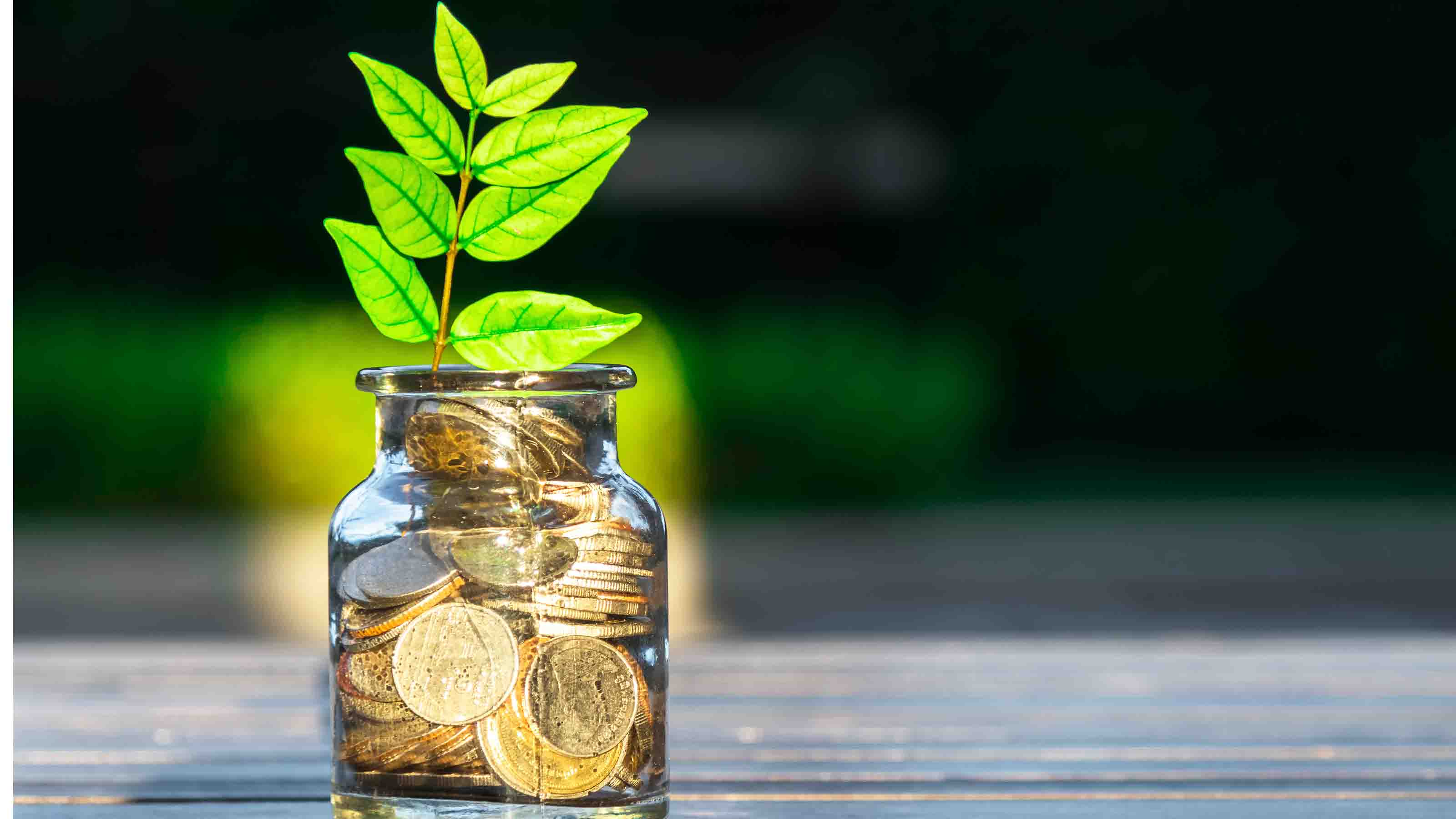 PODCAST: Decoding ESG Investing with Ellen Kennedy
PODCAST: Decoding ESG Investing with Ellen KennedyBecoming an Investor Environmental, social and governance investing is simpler than it sounds, and has a profitable track record to boot.
-
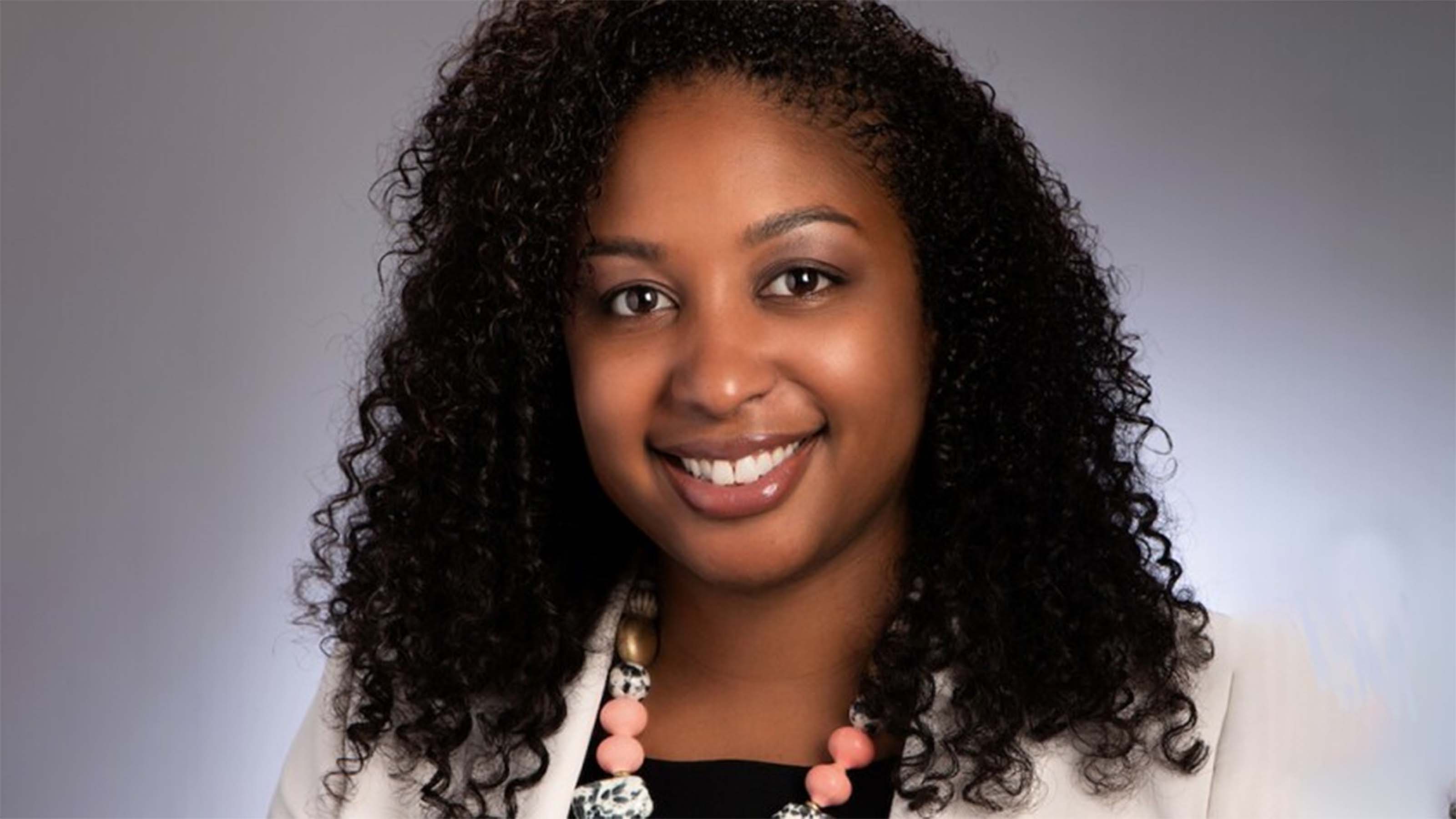 PODCAST: The Future of Certified Financial Planners with Kamila Elliott
PODCAST: The Future of Certified Financial Planners with Kamila ElliottBecoming an Investor CFPs will tell you (and we’d agree) that not all financial advice is the same. We talk with the chair of the CFP Board about what she’s doing to preserve her organization’s brand and extend its reach. Also, the right way to file your tax returns for free.
-
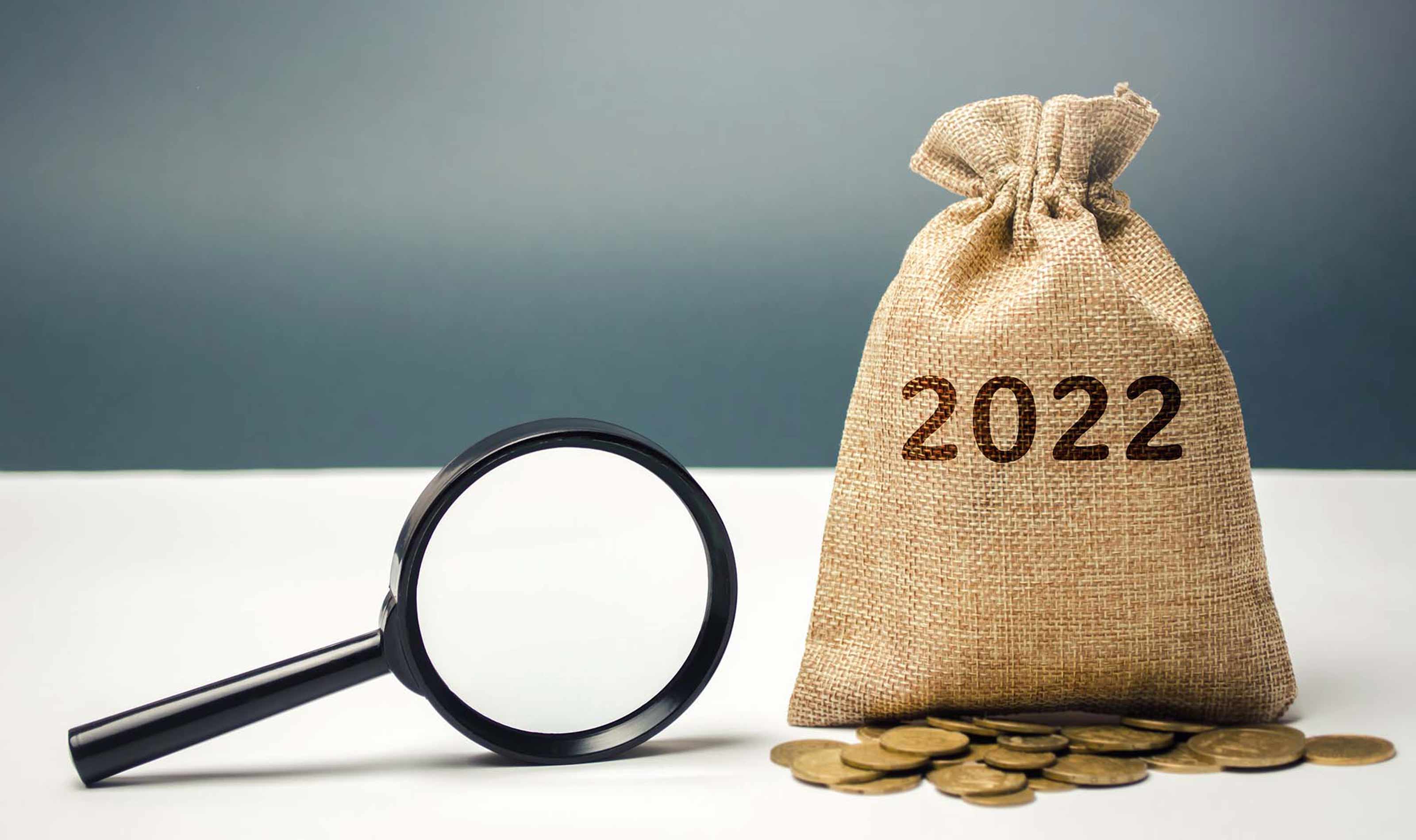 PODCAST: The Kiplinger Letter’s 2022 Forecasts
PODCAST: The Kiplinger Letter’s 2022 ForecastsEconomic Forecasts What to expect from the U.S. economy and an election-year Congress, as well as the outlook for cryptocurrency regulations, TikTok and more. Plus, we give the Elizabeth Holmes verdict a think.
-
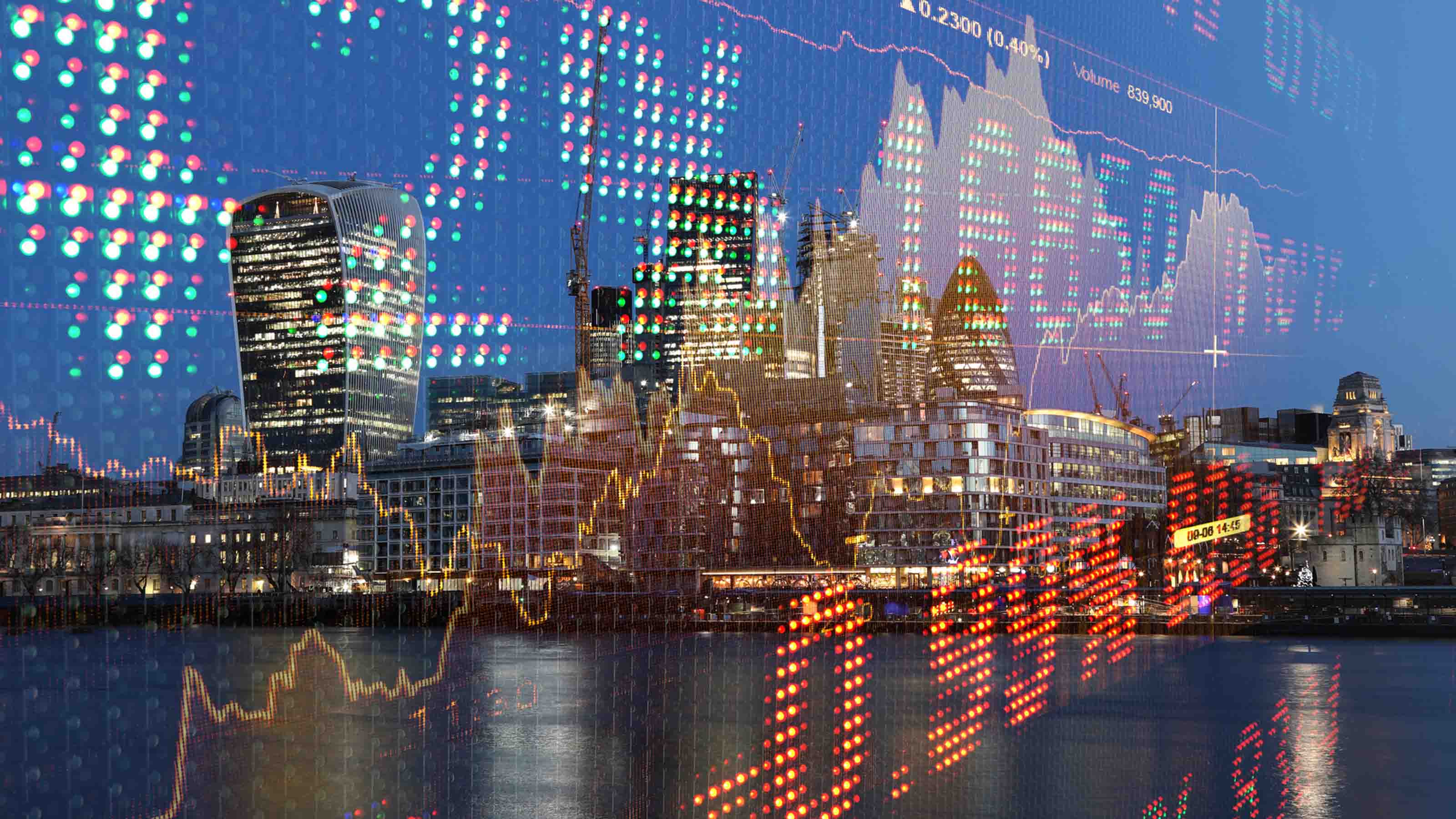 PODCAST: The 2022 Stock-Market Outlook with Anne Smith and James K. Glassman
PODCAST: The 2022 Stock-Market Outlook with Anne Smith and James K. GlassmanMarkets Sure, measuring stock markets by calendar years is a bit artificial, but it’s still a good way to give your portfolio a checkup. We forecast what stocks and sectors will fare well in 2022. Also, how the 401(k) got its start.
-
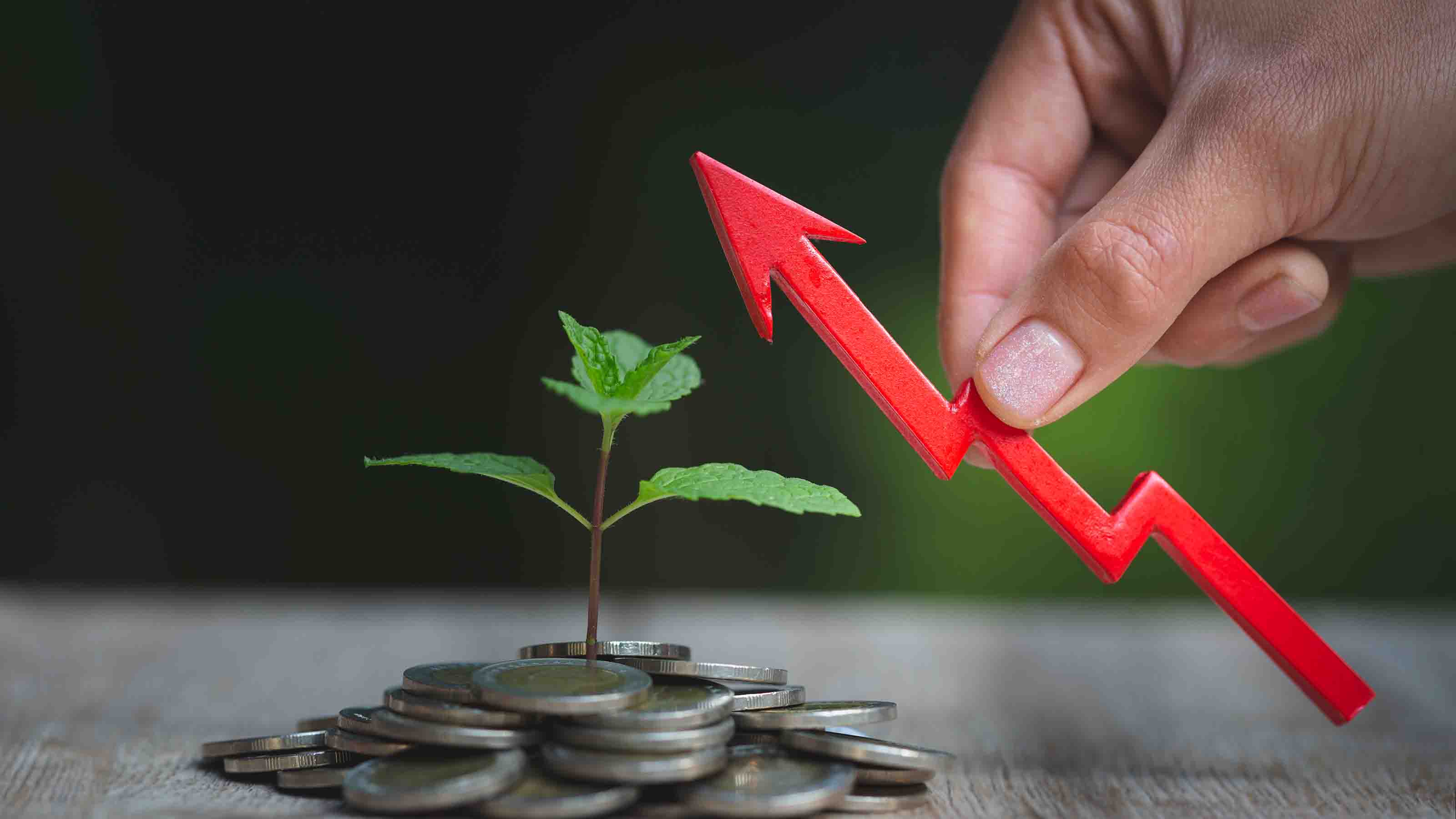 PODCAST: Investing for Income with Jeffrey Kosnett
PODCAST: Investing for Income with Jeffrey Kosnettinvesting Cold, hard cash working from home! No, this isn’t a scam — it’s an investing strategy built on bonds, REITs, preferred stocks and more.
-
 PODCAST: Brandon Copeland on Reaching Financial Freedom
PODCAST: Brandon Copeland on Reaching Financial FreedomFinancial Planning This NFL player’s path to a future of financial independence after his pro career is over can help the rest of us plan.

